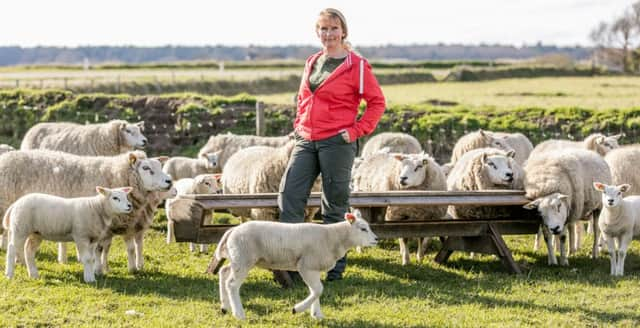Minerals – it’s all about the balance


For example, selenium is an antioxidant needed to protect tissues. Deficiencies in selenium are typically seen as sudden deaths in calves under one week old due to white muscle disease. This is why many farmers give an injection of vitamin E and selenium to calves as soon as they are born.
How much minerals do cattle and sheep need?
If mineral requirements are not met, growth, performance, fertility and health can be compromised. It would be easy if there were one rule to calculate requirements however, mineral requirements vary with breed, age, weight, growth rate, stage of production and mineral bioavailability.
Advertisement
Advertisement
The bioavailability of a mineral is the amount that is absorbed compared to the amount eaten. This is important because a mineral needs to be absorbed to carry out its function in the body. Practically, different mineral sources are absorbed at different rates and therefore enter the blood stream in different quantities. For example, studies have shown that the IntelliBond minerals are amongst the most bioavailable minerals. This is because they are protected and go into solution just before they reach the area of the gut where they are absorbed.
Do animals get enough minerals from their diet?
Depending on the diet, cattle and sheep may not get their complete mineral requirements from their diet without supplementation.
For example, just last week the Vet Record (weekly vet journal) reported two herds with deaths that were linked back to either low or zero minerals and vitamins in the ration.
The lab vet’s recommendations were to get expert advice from nutritionists on mineral and vitamins designed to complement the cattle diets. Trouw Nutrition Ireland work closely with feed mills to ensure optimum amounts of minerals are included in compound feed.
Advertisement
Advertisement
In cases where water or forages have high levels of antagonists such as iron or molybdenum, the protected nature of IntelliBond minerals allow for the delivery of minerals direct to the site of absorption.
Can you have too much of a good thing?
Although meeting animal’s mineral requirements are essential, supplementing at high amounts can result in toxic effects such as poor performance, scour or even death.
For example, over supplying copper can impair rumen function, decrease the digestibility of the diet and bind up other essential nutrients. As IntelliBond minerals are protected until the site of absorption, they do not interact with other nutrients, ensuring a consistent absorption at lower mineral supplementation rates.
At even higher levels of copper supplementation, cattle try to regulate blood copper by storing it in the liver, but there is a limit to the amount can be stored before causing death. Sheep have a limited capacity to store copper in the liver meaning they are more susceptible to copper poisoning than cattle.
Advertisement
Advertisement
To reduce the risk of over-supplying minerals, keep in mind risks such as giving mineral boluses at the same time as feeding meal that is designed to provide complete mineral requirements. If in doubt about mineral status of your herd, ask your nutritionist to help with an investigation, which may involve sampling forage and water. In addition, ask your vet to take some blood samples to check for mineral status.